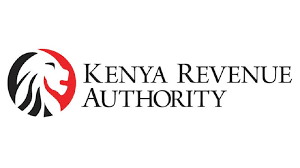KRA’s strong revenue results marred by integrity lapses

Despite achieving strong revenue results as shown it its latest report, Kenya Revenue Authority (KRA) is embroiled in controversy, primarily due to ongoing corruption concerns impacting the economy.
In October, the taxman surpassed its revenue targets for the first time since December 2021, with an impressive Sh6.8 billion above target and a performance rate of 103.3 per cent. Exchequer revenue exceeded expectations by Sh243 million, while the Domestic Tax Department brought in Sh5.97 billion above the target.
Key contributors included withholding tax, excise duty, betting tax, and oil taxes, which alone exceeded targets by Sh3.82 billion.
However, at the recent Taxpayers Awards, President William Ruto highlighted that 255 KRA employees are under investigation for corruption, and KRA’s iWhistle platform recorded 833 reports of malpractice by its staff, leading to the recovery of Sh4.22 billion.
“I commend those who reported these cases, which led to a recovery of billions,” he stated. Such revelations bring to light serious integrity issues within KRA, casting doubt on the institution responsible for managing the country’s tax revenues.
With a mandate to ensure fiscal responsibility, these allegations suggest that KRA may be struggling with systemic corruption.
Internal scandals have been recurring, with numerous KRA officials facing legal consequences.
In October 2024, former KRA employee David Omogo was charged in Milimani Anti-Corruption Court with accepting bribes to reduce a company’s tax arrears.
In the same month, three other KRA staff members were charged for accepting bribes to issue Tax Compliance Certificates. Back in 2019, a major investigation led to the arrest of 75 KRA employees over tax evasion and bribery allegations.
The persistence of such issues has even led President Ruto to take a public stance against KRA corruption. In 2023, during a visit to KRA headquarters, he directly warned staff against enabling tax evasion.
Even though the government conducts lifestyle audits on KRA staff every two years, the recent revelations indicate deeper, entrenched challenges. KRA is working to expand Kenya’s tax base as part of a broader effort to boost revenue. According to Ruto, the authority generated over Sh24.6 billion in the 2023/2024 fiscal year and added 1.2 million taxpayers to the national revenue base.
The taxman’s enhanced ETIMS system has also reportedly reduced VAT fraud and contributed Sh314 billion from VAT-registered taxpayers. Yet, corruption threatens to undermine these gains, as revenue leakages from bribery and misconduct impede effective revenue collection.
Corruption within KRA remains a substantial challenge to revenue mobilisation. When officials engage in malpractice, they compromise the integrity of the tax system, leading to significant revenue losses. “Efficient revenue collection faces challenges, including tax avoidance and administrative inefficiencies that foster corruption,” KRA stated on its website.












